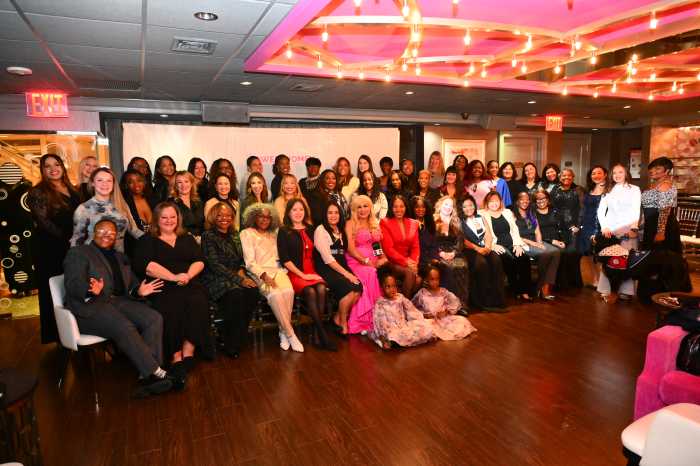By Steve Mosco
Extreme acts of violence against humanity are often met with widespread shock and unmitigated disgust, but in fanatical circles extreme acts of violence against women are often met with hushed nods of approval from the male ruling elite.
It is a paradigm Naheed Bahram is trying to change. The New York program director of Women for Afghan Women came to the Central Queens Y in Forest Hills this week to discuss her organization and her struggle to secure the rights of Afghan women.
“Young women are forced into marriages with men more than twice their age,” said Bahram at the Y, at 67-09 108th St. “And the women in these marriages have no rights and nowhere to turn to when the abuse begins.”
Bahram told a story of a 12-year-old Afghan girl who was forced to marry a 45-year-old man in Kabul. After years of physical abuse and the deprivation of her basic human rights, the girl tried to escape. After time spent on the run, she was eventually tracked down and stabbed 17 times — not by her husband or enemies, but by her father and brother.
“She was taken to a hospital in India and somehow survived,” Bahram said. “There is a pervasive culture of female abuse in Afghanistan. I believe it is because many men are misinterpreting the Quran.”
According to Bahram, a passage in the Quran depicting how a man should deal with marital strife has been misinterpreted as “with violence,” while in fact it means “leave the situation.”
And Bahram said the Islamic leadership in Muslim communities are often the worst offenders of violence against women — not because they physically engage in such acts, but because they do not practice prevention.
She said the Prophet Muhammad taught to love and respect one’s wife and that women in general deserve equal treatment to what men receive.
“Muhammad loved his wife. She was a businesswoman,” said Bahram. “If you read the Quran, he had incredible respect for his wife. But the media and the government in Afghanistan are both very corrupt. They distort the meaning.”
With offices in Fresh Meadows as well as Kabul, Afghanistan — in which the organization is kept safe from Taliban forces by American troops — the grassroots organization provides counseling to help women deal with abusive relationships, but also offers classes to teach them life skills many Afghan men believe to be forbidden for the fair sex.
Illiteracy is common in Afghan women and many husbands purposely keep their wives in the dark about finances, Bahram said.
“It is how the men consolidate power,” she said. “It keeps the fear alive.”
Fear was an everyday part of life for a young Bahram, who was born into a working-class family in Kabul while the Soviet war in Afghanistan was already under way. She lost her mother when she was 9 after a bomb hit her home, spurring her family’s migration to Peshawar, Pakistan, in the late 1980s.
After graduating from high school and teaching English to Afghan women in refugee camps in Pakistan, Bahram moved to the United States in 2004. She graduated from Queens College in 2011 with a bachelor’s degree in finance and economics.
It is a life that Bahram wants other Afghan women to experience, and while engaging the audience at the Forest Hills Y, Bahram reached her broader point of equality for all women — regardless of culture and religion.
“There are many similarities between persecuted women across the world,” she said. “This is about humanity. We should all have the same view on human rights.”
Reach reporter Steve Mosco by e-mail at smosco@cnglocal.com or by phone at 718-260-4546.





































